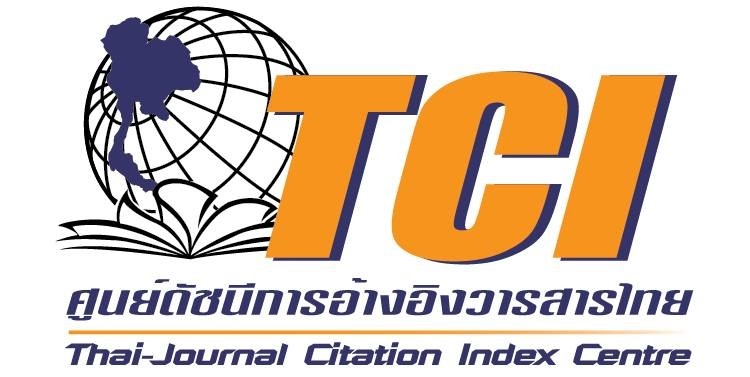Optimizing M Coffee's Marketing Strategies for the Chinese Coffee Market
คำสำคัญ:
M Coffee, marketing strategy, 7P marketing, China coffee market, SWOT analysisบทคัดย่อ
This research aimed to analyze the marketing strategies of M Coffee and propose improvements for the Chinese coffee market. A qualitative approach was employed, utilizing semi-structured interviews.Participants included 15 individuals: 5 management and employees, 7 consumers, and 3 industry experts. The management and employee group consisted of personnel in roles such as senior managers, regional operations leaders, and marketing/human resources staff. The consumer group comprised coffee drinkers aged between 24 and 35. Industry experts included academics, consultants, and brand strategists specializing in coffee retail. The study applied the 7P marketing framework to analyze M Coffee’s marketing strategies. Thematic analysis was used to analyze interview transcripts, with codes assigned to identify recurring themes within the 7P marketing. Subsequently, a SWOT matrix was utilized to synthesize internal and external factors influencing M Coffee’s competitive capability. The research findings revealed that M Coffee's current low-price strategy attracted customers but limited profitability and brand differentiation. Consumers expressed a desire for more product variety and premium experience. M Coffee should diversify its offerings, including premium options and seasonal items, and enhance customer experience by improving the store design and atmosphere. Furthermore, it should develop a comprehensive digital platform and invest in employee development and retention. By adapting its marketing strategies, M Coffee could increase brand value, customer engagement, and achieve long-term sustainability in the competitive Chinese coffee market.
เอกสารอ้างอิง
Ashley, C., & Tuten, T. L. (2021). Creative strategies in social media marketing: An exploratory study of branded social content and consumer engagement. Journal of Marketing Theory and Practice, 29(2), 162–179.
Brown, M. (2021). The future of coffee: Personalized experiences in a digital world. Journal of Coffee Studies, 12(2), 123–145.
Chen, H., & Zhang, J. (2024). Factors influencing consumers' purchasing decisions under the live-streaming sales model: A case study of Douyin. E-commerce Review, 13(3), 1010.
Chen, L., Liu, Y., & Wang, Z. (2020). The impact of digital promotions on coffee brand loyalty. Marketing Review, 25(4), 456–478.
Chen, X. (2018). 消费升级背景下的中国咖啡文化发展研究 [The development of coffee culture under consumption upgrading]. Economic Development Review, 7(4), 32–40.
Chen, X., & Li, H. (2020). The growth of specialty coffee in China. Journal of Consumer Behavior, 15(3), 112–125.
De Veirman, M., Cauberghe, V., & Hudders, L. (2020). Marketing through Instagram influencers: The impact of number of followers and product divergence on brand attitude. International Journal of Advertising, 39(5), 798–828.
Frost & Sullivan. (2020). China Coffee Market Report. Frost & Sullivan Research.
Garcia, A. (2020). Experiential coffee consumption: The rise of community and ambiance. Journal of Consumer Research, 47(3), 321–345.
Huang, M. H., & Wei, S. (2021). Experiential coffee consumption and digital engagement in China. Journal of Retail and Consumer Services, 57, 102356.
Hwang, J., & Kim, S. H. (2020). The role of brand personality in online brand communities: Evidence from the cosmetic industry. Journal of Business Research, 117, 362–371.
Kaplan, A. M. (2020). Users of the world, unite! The challenges and opportunities of Social Media. Business Horizons, 63(1), 67–75.
Kim, S., & Lee, J. (2023). The role of digital platforms in building coffee brand loyalty. Journal of Marketing Management, 39(1-2), 87–109.
Kim, Y., & Lee, S. (2021). Digital transformation and consumer experience in the coffee industry. Journal of Foodservice Business Research, 24(5), 701–718.
Kumar, A., Bezawada, R., Rishika, R., Janakiraman, R., & cuevas, R. (2021). From social to sales: The effects of social media marketing on retail store sales. Journal of Marketing, 85(6), 66–84.
Leeflang, P. S., Verhoef, P. C., Dahlström, P., & Freundt, T. (2020). Challenges and solutions for marketing strategy in the digital era. European Journal of Marketing, 54(1), 1–16.
Liu, Z. (2021). Social media marketing and consumer engagement in M Coffee. Social Media Strategies, 18(1), 15–22.
Mordor Intelligence. (2023). China Coffee Market Analysis. Mordor Intelligence Research.
Tuten, T. L., & Solomon, M. R. (2018). Social media marketing. Sage.
Wang, J., & Chen, L. (2022). Product innovation and competitive advantage in China’s coffee industry. Asian Business Review, 16(2), 99–115.
Wang, J., & Liu, H. (2020). 中国咖啡市场研究报告 [China coffee market research report]. Beijing Publishing House.
Yang, S., & Zhang, Q. (2021). 从价格优势到品牌溢价:M Coffee的市场策略 [From price advantage to brand premium: M Coffee’s market strategy]. Marketing Dynamics, 20(3), 55–63.
Yang, W. (2022). Ethical sourcing and sustainability trends in China's coffee sector. Sustainable Business Review, 14(1), 43–59.
Zhang, X., Wei, Y., & Zhou, R. (2022). Consumer preferences for specialty coffee in China. Food Quality and Preference, 98, 104487.
Zhang, Y. (2021). M Coffee’s success: High-value affordability and social media marketing. China Business Journal, 32(5), 27–38.
Zhang, Y., & Wang, J. (2020). Urban coffee consumption trends in China. Urban Studies Journal, 28(4), 45–61.
Zhou, C. (2022). The promotion strategy of M Coffee in China. Atlantis Press, 12(1), 75–89.
ดาวน์โหลด
เผยแพร่แล้ว
รูปแบบการอ้างอิง
ฉบับ
ประเภทบทความ
สัญญาอนุญาต
ลิขสิทธิ์ (c) 2025 Journal of Public and Private Issues

อนุญาตภายใต้เงื่อนไข Creative Commons Attribution-NonCommercial-ShareAlike 4.0 International License.









